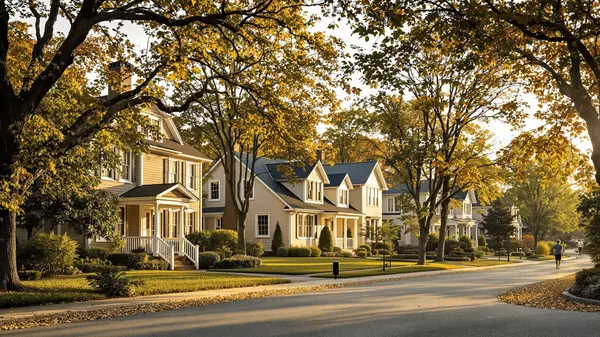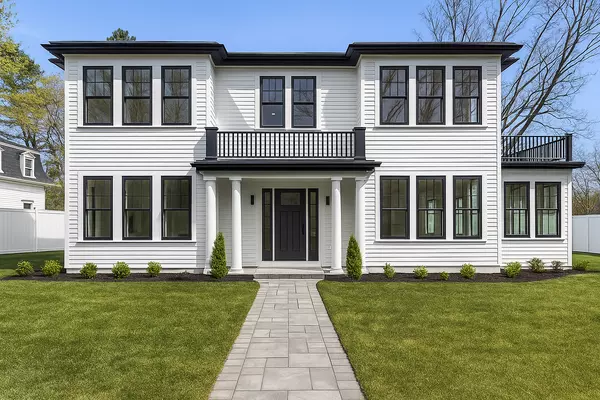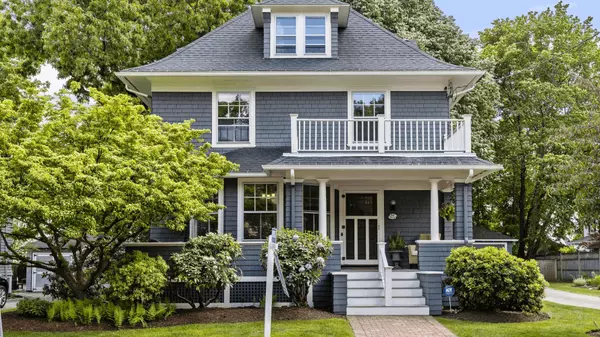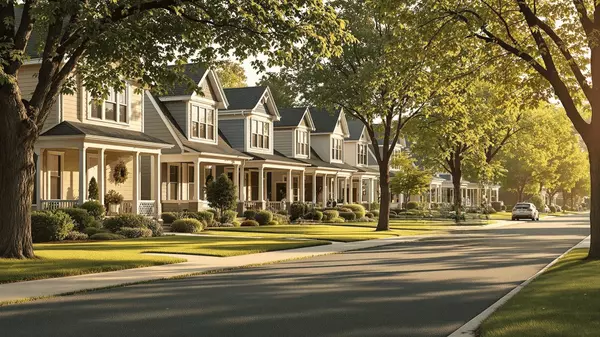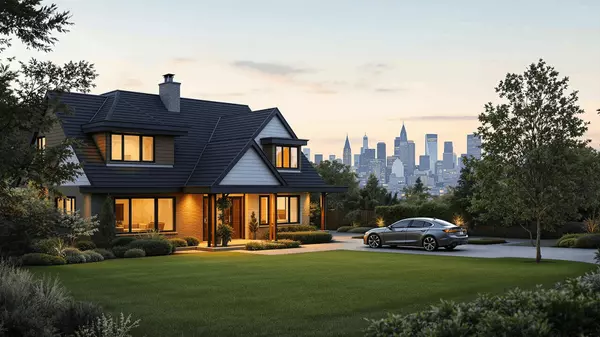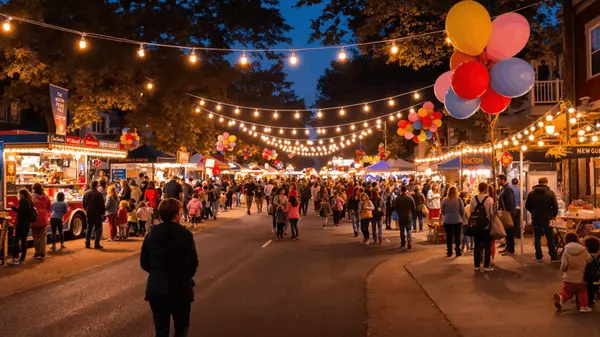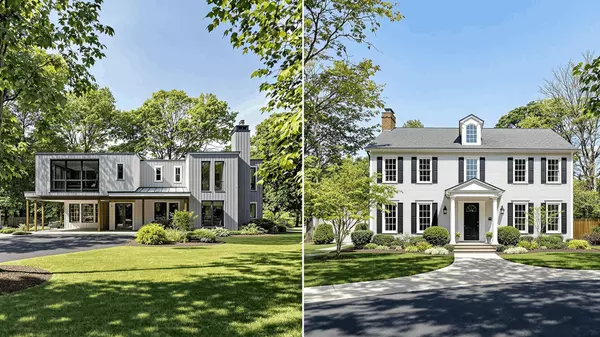The 13 Villages of Newton, MA: What Makes Each One Unique
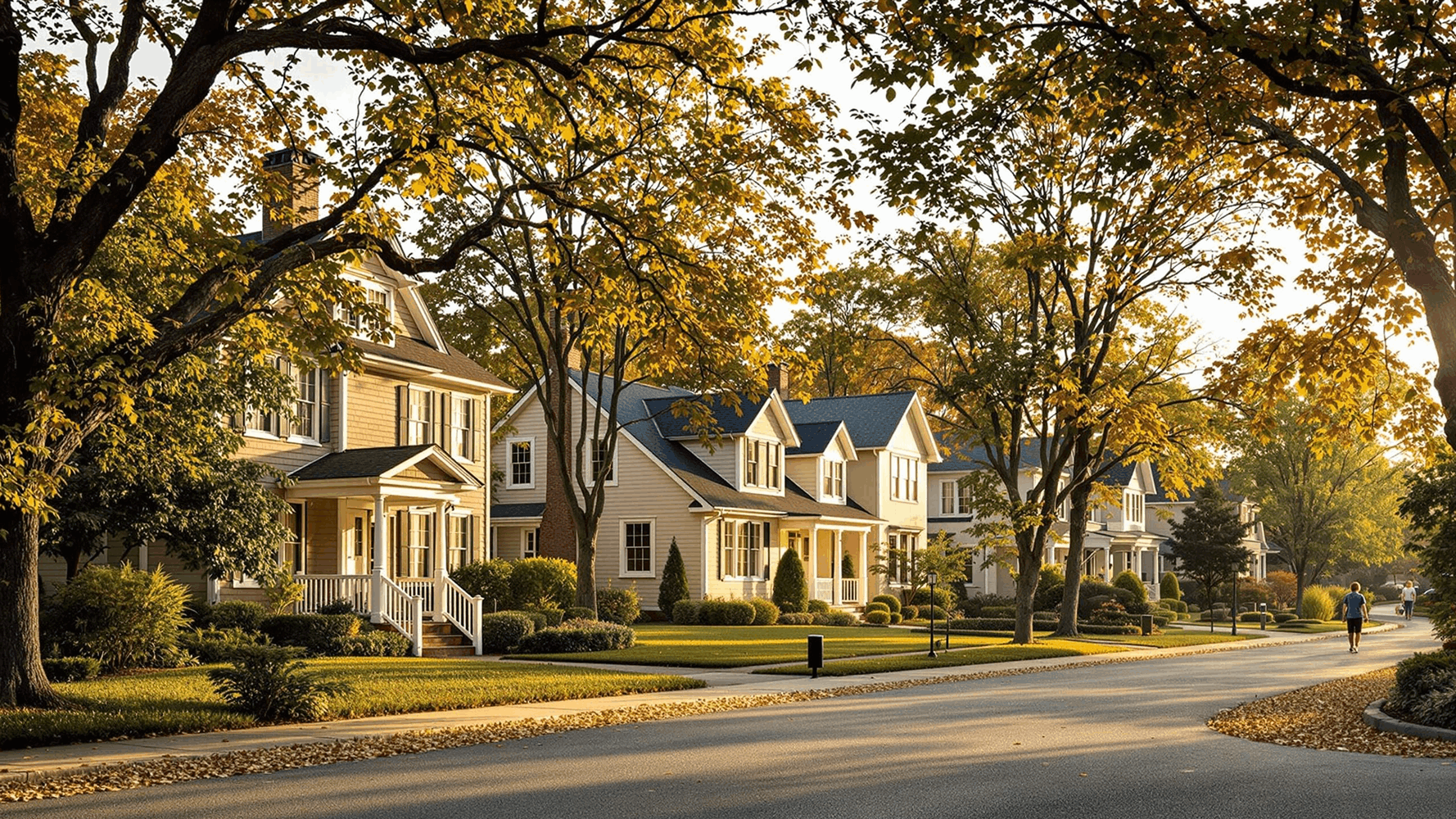
Newton, MA: A Guide to the 13 Unique Villages
Newton, Massachusetts, is a city distinguished by its thirteen distinct villages, each with its unique character and charm. These communities offer a diverse array of amenities, cultural experiences, and local history that draw both residents and visitors alike. Exploring the layout of these villages reveals a rich tapestry of neighborhoods that contribute to the overall appeal of Newton.
From the bustling centers of Newton Centre and Newtonville to the quieter streets of Auburndale and Oak Hill, each village holds its own identity. Understanding the geographic and cultural nuances of these communities provides insights into why Newton remains a desirable place to live and explore. The accessibility of public transport and local attractions enhances the experience, making it convenient for residents and visitors to engage with all that Newton has to offer.
For those looking to uncover more about the history, demographics, and local initiatives that shape these communities, a closer look at the thirteen villages is essential.
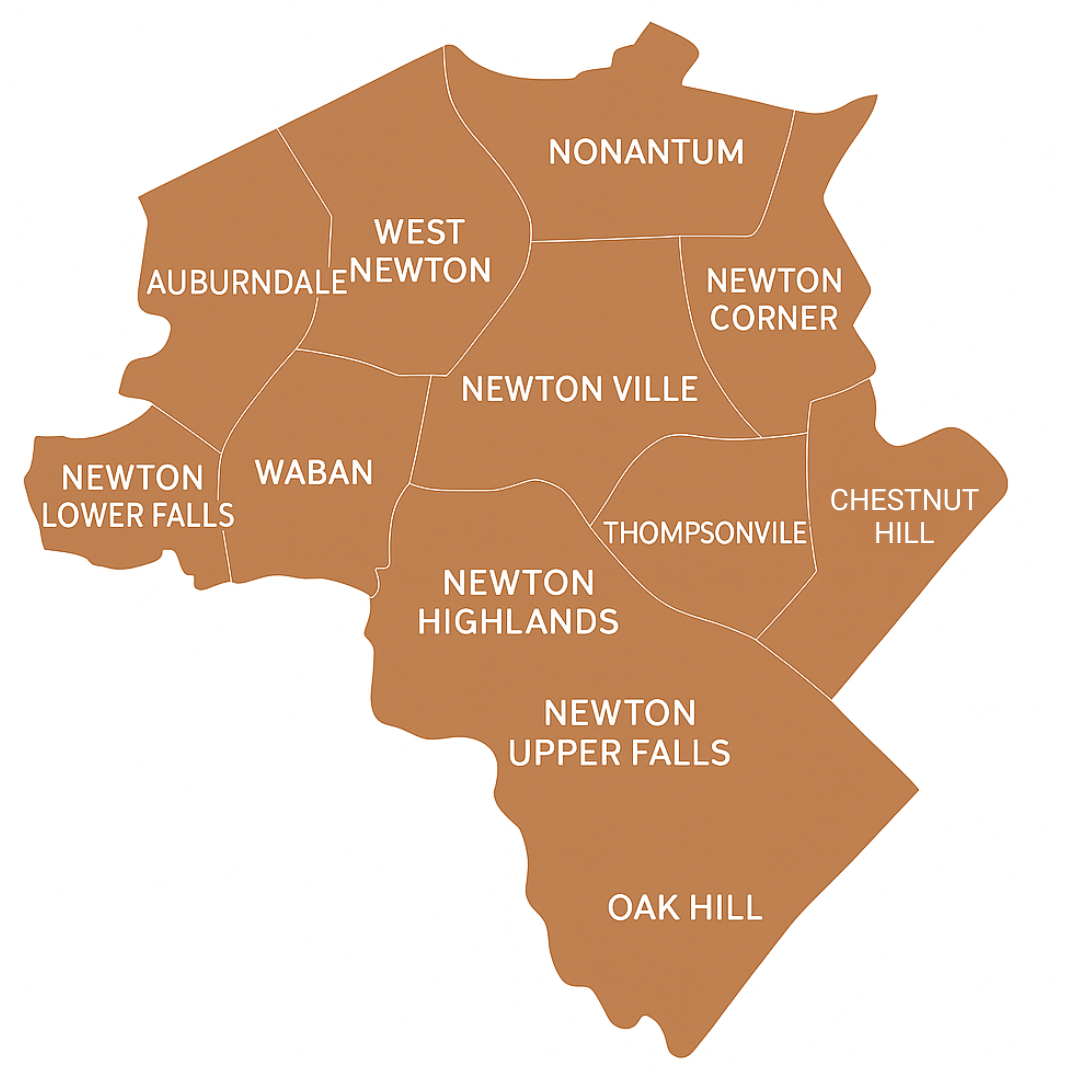
History of Newton Village
Newton, MA, is more than just a collection of neighborhoods—it’s a tapestry of thirteen unique villages, each with its own story and spirit. With a history stretching back to 1630, Newton has evolved into a vibrant city that seamlessly blends the charm of a small town with the conveniences of modern living.
Founding and Development
Newton was founded in 1630 and initially settled by colonists, notably John Jackson. By 1688, it was incorporated as a town, and in 1873 became a city. The arrival of the railroad in the mid-19th century spurred significant growth in village centers. Each of the 13 villages, such as Newton Corner and Auburndale, developed unique characteristics influenced by their respective histories.
The villages grew gradually, reflecting the early agricultural economy before transitioning into more urbanized areas. By the early 20th century, they had established distinct identities, shaped by local industries, schools, and churches reflecting the tight-knit community spirit.
Landmarks and Heritage
Newton is home to numerous landmarks that highlight its historical significance. Notable sites include the Newton Centre Historic District, recognized for its well-preserved architecture. The village of Newton Lower Falls features the iconic Jackson Homestead, showcasing the area's industrial past related to mills and factories.
Historic homes dot the landscape, providing a glimpse into different architectural styles that narrate Newton’s evolution through the centuries. Many of these landmarks serve not only as reminders of the past but also as centers for community activities and cultural events. Each village, with its unique heritage, contributes to the overall tapestry of Newton’s history.
The 13 Communities
Newton, Massachusetts is a vibrant city composed of thirteen distinct communities, each offering its own unique characteristics. These areas encompass a blend of residential neighborhoods, commercial districts, educational institutions, and numerous parks and recreational spaces.
Auburndale - Quaint and picturesque, Auburndale is a riverside haven. With easy access to the Charles River, scenic walking trails, and Auburndale Cove for kayaking and picnicking, it’s a peaceful retreat for nature-loving families. The village center is a cozy mix of local shops and cafes, making it easy to bump into friends and neighbors.
Newton Centre - As the city’s bustling hub, Newton Centre is where history meets modern convenience. Think boutique shopping, vibrant dining, and a bustling farmers’ market scene—plus a central playground that draws families together. It’s also home to beautiful historic homes and tree-lined streets, making it as charming as it is lively.
Newton Highlands - A family-friendly gem with a village center that feels like a small town within the city. Here, you’ll find charming architecture, lively restaurants, and playgrounds that buzz with energy. The sense of community is strong, with seasonal events and family-oriented activities that keep neighbors connected year-round.
Waban - With its tree-canopied streets and top-rated schools, Waban exudes an old-world charm blended with modern family living. The village green is a social hub, and local businesses cater to the community’s love of good coffee, fresh bread, and healthy living. Nearby parks and playgrounds create endless possibilities for outdoor fun.
West Newton - Bustling with activity yet grounded in history, West Newton is home to the MBTA commuter rail station—perfect for Boston-bound commuters—and vibrant local businesses. The village hosts family-friendly events and seasonal farmers’ markets, bringing together neighbors for food, music, and shared memories.
Newtonville - A dynamic blend of residential streets and lively commercial spaces, Newtonville offers an urban feel with a suburban heart. Local restaurants and specialty shops dot the village center, while Cabot Park is a favorite gathering spot for families looking for playground time or pick-up games on the basketball courts.
Newton Upper Falls - Once an industrial center, this village still celebrates its historic roots with beautifully restored mill buildings and the iconic Hemlock Gorge Reservation. Families here enjoy easy access to nature along the Charles River and a growing number of dining and shopping options in its quaint village center.
Newton Lower Falls - Nestled along the Charles River, this village is all about scenic charm and tranquil living. Riverside trails and conservation areas provide endless opportunities for hiking, fishing, and quiet reflection, while the community’s small-town feel is perfect for those seeking a slower pace without losing city convenience.
Chestnut Hill - Straddling Newton and neighboring Brookline, Chestnut Hill blends luxury living with natural beauty. Historic estates, Boston College’s iconic campus, and upscale shopping at The Street Chestnut Hill make this a highly sought-after neighborhood for those who love refined living with easy access to city amenities.
Nonantum (The Lake) - Rich in cultural heritage, Nonantum—affectionately known as “The Lake”—is known for its tight-knit Italian community, delicious bakeries, and vibrant local pride. The area buzzes with community events, family-run businesses, and a welcoming spirit that draws families of all backgrounds.
Oak Hill - A peaceful residential neighborhood with a suburban feel, Oak Hill is known for its spacious homes and quiet streets. Here, families enjoy easy access to top-rated schools, sports fields, and the tranquility of Cold Spring Park just a short walk away.
Thompsonville - A hidden gem tucked between Newton Centre and Chestnut Hill, Thompsonville is all about quiet charm and leafy streets. With easy access to nearby village centers, this small but mighty neighborhood is a haven for families seeking a tight-knit community vibe.
Newton Corner - Historic and convenient, Newton Corner offers quick access to downtown Boston thanks to its commuter rail station and proximity to major highways. Families love the blend of classic homes and urban convenience, with parks and playgrounds ensuring kids have plenty of space to play.
Residential Areas
The residential neighborhoods in Newton are diverse, catering to a variety of lifestyles and preferences. Prominent areas include Auburndale and Newton Highlands, featuring charming homes with tree-lined streets. The architectural styles range from historic houses to modern constructions, reflecting the city’s evolving character.
Each village boasts amenities such as grocery stores, coffee shops, and local restaurants, providing convenience to residents. The community atmosphere is enhanced by active neighborhood associations that organize events and foster connections among residents. This creates a strong sense of belonging and safety throughout the villages.
Commercial Districts
Newton’s commercial districts are concentrated within various village centers, where local businesses thrive. Newton Centre is known for its mix of boutique shops, cafes, and restaurants that attract both residents and visitors.
In addition to dining and retail, these areas often house service-oriented businesses such as banks and salons. The presence of these establishments contributes to the local economy and encourages community engagement. Seasonal farmers' markets are also a highlight, promoting local produce and community interaction.
Educational Institutions
Educational institutions in Newton play a key role in shaping the community. The city is home to several public and private schools that serve a diverse student population. Schools like Newton North High School and Newton South High School are recognized for their academic excellence and extracurricular offerings.
Higher education options include the prestigious Boston College located in the Chestnut Hill neighborhood. These institutions not only provide quality education but also foster partnerships with local organizations, enriching the community's cultural and intellectual landscape.
For many families, the decision to move is about more than just finding the perfect home—it’s about creating a foundation for their children’s future. In Newton, that foundation is built on education. The city’s exceptional public schools are a magnet for families who want the very best for their kids.
A Reputation for Academic Excellence
Newton’s schools consistently rank among the top in Massachusetts, a state already known for its high educational standards. From A.E. Angier Elementary and Zervas Elementary to Newton South High School and Newton North High School, these schools aren’t just top-notch academically—they’re also known for nurturing well-rounded students who are curious, engaged, and supported.
A Culture of Community and Support
Newton’s schools are more than buildings—they’re communities. Teachers, parents, and neighbors all play a role in making sure every child feels welcome and encouraged. It’s a place where PTA meetings are packed, teachers know your child’s name, and families come together to support everything from science fairs to school musicals.
A Safe, Nurturing Environment
Parents relocating to Newton are often drawn by the promise of safe, inclusive, and supportive school environments. Kids here don’t just learn—they thrive, thanks to small class sizes, dedicated staff, and programs that cater to every learning style and interest.
Enrichment Beyond the Classroom
From robotics clubs to award-winning theater productions, Newton’s schools offer endless opportunities for students to explore their passions. These extracurriculars build confidence, leadership skills, and lifelong friendships—key reasons why parents see a move to Newton as an investment in their kids’ future.
Easy Access and Family-Friendly Amenities
The city’s walkable neighborhoods, family-friendly events, and active neighborhood associations only sweeten the deal for relocating families. And with easy access to Boston via public transportation, parents can have the best of both worlds: top schools for their kids and a manageable commute for themselves.
A Community That Shares Your Values
For families relocating to Newton, it’s not just about good grades—it’s about joining a community that cares about learning, inclusivity, and opportunity. In Newton, education is a shared priority, and every child’s success is a celebration for the whole community.
Parks and Recreational Areas
Newton features an array of parks and recreational facilities, offering residents ample opportunities for outdoor activities. Highlights include the expansive Crystal Lake Park, which provides swimming, picnicking, and trails for walking and jogging.
Other notable parks, such as Auburndale Cove and the Newton Commonwealth Golf Course, cater to various interests, from sports to leisurely strolls. The presence of these green spaces encourages an active lifestyle and environmental appreciation while serving as communal gathering spots for residents throughout the year.
Transportation and Accessibility
Newton features a well-integrated transportation system that caters to diverse commuting needs, including public transportation options, major roadways, and facilities for pedestrians and cyclists. The design reflects the city's focus on accessibility and connection across its thirteen villages.
Newton’s layout is designed to make life not just convenient, but also inviting—where every trip feels like a small-town stroll and every commute is a breeze.
Walkable Villages & Friendly Streets
Each of Newton’s 13 villages has its own walkable center, where you can pop out for a coffee, grab fresh produce at the farmers’ market, or stroll to a playground after school pick-up. Shady sidewalks and pedestrian-friendly streets make it easy (and fun!) to explore your neighborhood on foot—no car required for daily errands and local adventures.
Bike Paths & Greenways
For those who prefer two wheels, Newton offers an expanding network of bike paths, including the scenic Charles River Greenway. This beloved trail connects villages along the river, weaving through natural landscapes and offering peaceful escapes for bikers, walkers, and runners alike. Many of Newton’s villages are also adding new bike lanes to make pedaling around town even easier and safer.
Public Transit That Works for You
Families and commuters alike rely on the MBTA Green Line D Branch, which cuts right through Newton, whisking you into Boston in under 30 minutes. With commuter rail stations like West Newton and nearby bus lines linking the villages, you’ve got options—whether you’re heading downtown for work, school, or a Red Sox game at Fenway.
Smooth Driving for Busy Days
For those days when only four wheels will do, Newton’s major thoroughfares—like Route 9, Commonwealth Avenue, and Riverside Parkway—connect the city’s villages and provide quick access to I-95/Route 128 and the Mass Pike. This means getting around Greater Boston is a snap, whether you’re dropping kids at school, heading to a weekend soccer tournament, or exploring the region’s best shopping and dining.
Designed for Families and Professionals Alike
This mix of pedestrian-friendly design, bike-friendly infrastructure, and reliable transit makes Newton a dream for busy families and professionals alike. It’s the kind of place where you can walk your kids to school in the morning, hop on a train to Boston for a work meeting, and be back home in time for dinner.
Public Transportation Systems
Newton's public transportation is primarily managed by the Massachusetts Bay Transportation Authority (MBTA). The city is served by several bus routes that connect various villages to broader transit networks. Notable lines include the 57 bus, which facilitates travel to Watertown Square and the Newtonville train station.
The D Branch of the Green Line also runs through Newton, providing direct access to downtown Boston. This service enhances mobility for residents and visitors, promoting use of public transit over personal vehicles. Additionally, transit schedules are designed for convenience, with frequent service during peak hours.
Major Roads and Highways
Several major roads and highways traverse Newton, ensuring efficient vehicular access. Key routes include Route 9, which runs east-west and connects Newton to surrounding communities and major interstate highways.
Commonwealth Avenue is another important thoroughfare, providing a direct link to both downtown Boston and other nearby areas. Riverside Parkway helps facilitate local traffic and allows easy navigation through different villages. Such roads are vital for commuting and accessing local amenities, ensuring that residents can travel with ease.
Pedestrian and Cycling Paths
Newton places a strong emphasis on pedestrian and cycling paths to encourage sustainable transportation options. The city has developed various walking trails and bike lanes, allowing safe passage through its villages.
The Charles River Greenway offers scenic routes for both walkers and cyclists, connecting neighborhoods while promoting outdoor activity. Additionally, local initiatives aim to enhance infrastructure, making biking safer with clearly marked lanes. This infrastructure supports active commuting and recreational options, contributing to the overall accessibility of the city.
Geographic Layout
Newton's geographic layout showcases diverse topography and distinct climate conditions. The combination of hills, valleys, and varying weather patterns contributes to the character of its thirteen villages.
Climate and Weather Patterns
Newton experiences a humid continental climate characterized by four distinct seasons.
- Winter: Cold temperatures with an average snowfall of 40 inches, creating opportunities for winter sports.
- Spring and Fall: Mild temperatures and vibrant foliage attract residents and visitors alike.
- Summer: Warm, humid conditions often peak in July, with average highs reaching the upper 80s.
These climate patterns affect daily life, influencing outdoor events, landscaping choices, and gardening. The variation across seasons plays a significant role in the activities available within Newton's communities.
Local Governing Bodies
Newton's local governance involves a structured municipal administration and a focus on community services and safety. Understanding these frameworks is essential for residents and those interested in the functioning of the city.
Municipal Administration
The municipal administration of Newton operates under a Mayor-Council system. The Mayor serves as the chief executive, while the City Council acts as the legislative body.
Key components include:
- Mayor's Responsibilities: The Mayor oversees city operations, implements policies, and prepares the annual budget.
- City Council Duties: Council members represent various districts, propose legislation, and ensure community needs are addressed.
City departments, such as planning, finance, and public works, support the administration, allowing for effective governance tailored to each of Newton's villages.
Community Services and Safety
Community services in Newton focus on enhancing the quality of life for residents. This includes education, health services, and recreational programs.
Key elements include:
- Public Safety: The Newton Police Department and Fire Department are committed to maintaining safety and responding effectively to emergencies.
- Recreation and Social Services: Programs offered through community centers provide recreational activities and support for families and individuals.
These services are vital for fostering a connected community, ensuring that residents feel secure and supported in their daily lives. Each village benefits from tailored services addressing specific local needs.
Newton has just the right balance of good schools, safe neighborhoods, and an easy commute with a city-worthy culture. The spirit of community is strong here, with many small family-run businesses calling Newton home. The people of Newton are educated and driven by a passion for culture. You’ll find everything from upscale restaurants, casual coffee shops, and shopping opportunities to historic museums, libraries, and houses all within the city limits. There are also ample green spaces and recreational areas that give a very suburban feel despite the close proximity to Boston.
Learn more about each neighborhood’s personality by clicking below.
West Newton
Boasting several historic homes, schools and churches, West Newton is most notable for its ties to New England history. Notable former residents include Nathaniel Hawthorne, Timothy Leary, and Matt Damon. The Newton Free Library is also located in West Newton. The carriage lane of Commonwealth Avenue - from the Newton Marriott to Boston College — like a recreation path. It’s not uncommon to see runners, groups of walkers, moms with strollers, and cyclists there throughout the day. Avid cyclists who visit the area should certainly check out Harris Cyclery, a popular local cycling shop.
Katherine’s favorite places in West Newton include several local eateries - namely The Local, Paddy’s Public House, Sweet Tomato Pizza, Blue Ribbon BBQ, L’Aroma Cafe, and Comellas Restaurant.
Thompsonville
Thompsonville, the smallest of the Newton villages, offers an urban suburban mix feel. Real estate in this village consists primarily of medium to large sized single-family homes as well as high rise apartments. Although it is home to fewer historic homes than some of the other villages, there are a lot of restaurants, coffee shops, and parks.
Oak Hill
Oak Hill, the southernmost of the Newton Villages, is the most suburban. In fact, this area remained semi-rural through the 1940s. Due in part to its late development, Oak Hill has much more open space than many of Newton’s other villages. It is home to Newton South High School, Brown Middle School, and Oak Hill Middle Schools.
Newton Lower Falls
Newton Lower Falls gains its suburban feel from parks, the Charles River, and a public golf course. Canoe or kayak in the Charles or visit Nahanton Park, approximately 57 acres of forest, gardens, and meadows along the river. This village claims more than 150 homes on the historic register and is home to the Echo Bridge pedestrian walkway. The Falls Ball, a popular event where local bands play to support the Hamilton Community Center, is also held annually in the Newton Lower Falls.
Lower Falls Wine Co., Didriks, and Starbucks are some of Katherine’s places of interest in Newton Lower Falls.
Newton Upper Falls
Sitting on the east bank of the Charles River, Newton Upper Falls is named for its spot on the falls. This village has over 150 houses on the historic register and features many homes in the Greek Revival, Late Victorian, and Gothic Revival styles. There are plenty of walking, running, and cycling paths in Newton Upper Falls. This village is home to the Echo Bridge pedestrian walkway, is walking distance from the Needham Street corridor, and also has the Upper Falls Greenway, a safe, car-free trail for walking, jogging, bicycling and general recreation. Hemlock Gorge, a scenic riverside area, is also nearby. Virgilio’s Echo Bridge Restaurant and the Biltmore Grill are two of Katherine’s favorite eateries in the Upper Falls village.
Newtonville
Like many of the city’s other villages, Newtonville is home to a historic district. Primarily residential, the heart of the village is home to some commercial businesses. The village center is a large commercial hub bisected by the Massachusetts Turnpike with businesses clustered on Washington and Walnut Street. Newtonville is also home to one of the city’s two high schools, Newton North High School.
Some of Katherine’s favorite locations in Newtonville include Cook Restaurant, LeDu Thai, Cabots Ice Cream and Restaurant, Los Amigos Taqueria, Shaws Market, and George Howell Coffee.
Newton Corner
Newton Corner is home to the oldest European settlement in the city. It features many beautiful homes and borders Brighton and Watertown. The best known landmark in Newton Corner is the hotel that was built over the Mass Turnpike, which is currently owned by the Crown Plaza. Newton Corner is home to Newton Country Day School, a private school for girls.
Kathrine’s top spots for Newton Corner include Max and Leo’s Pizza, Bertucci’s, and Social Restaurant and Bar.
Newton Centre
Newton Centre is Newton’s largest village and the downtown area of Newton. It features upscale shopping and is home to Newton City Hall. The Newton Centre Green, the village’s town green space, is also located here. Two museums, The Durant-Kenrick House and Grounds and The Jackson Homestead and Museum are popular attractions in Newton Centre. There are Ethnic Festivals on the Green on Sunday evenings. Boston College’s law school is located in Newton Centre.
Katherine’s top picks in Newton Centre include the Little Big Diner, JP Licks, Sycamore, Farmstead Table, Johnny’s Luncheonette, Jake’s Falafel Corner, Bill’s Pizzeria, and Rosenfeld’s Bagels. Her other favorites are MiniLuxe and Mr. Sid, a notable men’s apparel shop in the Boston area.
Chestnut Hill
Chestnut Hill is a village that shares its name with the neighboring Chestnut Hill area of Brookline. It has an abundance of historic architecture, with some sections of the village having been designated as historic districts. You will find buildings built in Colonial, Victorian, Italianate, and Tudor Revival styles in this village. Hammond Pond Reservation is the primary open space in this neighborhood. Pets are allowed on the reservation, so it’s a great locale for dog lovers. Chestnut Hill is also home to Beth Israel Deaconess Medical Center.
Katherine’s favorite places in Chestnut Hill include boutique shopping plazas Shops at Chestnut Hill and The Street. She also enjoys the wellness clubs Soul Cycle and Lifetime Fitness. Winston Flowers and Chilacates are two other must-see businesses in Chestnut Hill!
Waban
Named after an Algonquin chief, the Waban area is easily accessible via the Green line of MBTA. This makes Waban an ideal village for commuters. It is an architecturally diverse area, boasting 19th century Queen Anne and Shingle style homes as well as 20th century Colonial Revival, Tudor, and Craftsman homes. Locals enjoy Cold Spring Park farmers market in the spring and fall.
Katherine’s favorite places in Waban include Starbucks in Waban Square, Stone L’Oven Pizza, Sole Man Shoe Repair, Waban Hardware, Barry’s Deli, and Vino Divino, and Waban Library.
Auburndale
Auburndale or "The Dale" as it’s known to longtime residents, lies at the western end of Newton. Commuting in a car is a breeze as this village is near the intersection of interstate highways 90 and 95. Auburndale is the home to both Williams and Burr elementary schools, as well as Lasell College. Gothic houses and Queen Anne style homes, as well as Italianate, Second Empire, Shingle and Colonial Revival are the prominent architectural styles in the district. The Harding House-Walker Missionary Home built circa 1850 is a well-preserved example of the Italianate styling typical to this neighborhood.
Places of interest in Auburndale include Bruegger’s Bagels, Dewire Autobody, Auburndale Wine Shop, and Just Next Door Gifts.
Newton Highlands
The Newton Highlands is an eclectic neighborhood with a mix of old and new. Once described in the Newton times as “Victorian coziness and sensual hodge-podge”, you will find a main street full of unique shops, restaurants and antiques as well as Northland, a redevelopment project located at the end of Needham Street and Oak Street in Newton Highlands. The Northland project is a mixed use redevelopment project. The highlands are also home to Crystal Lake, a great pond open for both swimming and swimming lessons. There's a bathhouse on site and lifeguards for safety with designated areas based on swimming abilities.
Katherine’s favorite places in Newton Highlands include Salon Capri, Hyde Park, Lincoln Street Shops, Coco Nails, Newton Eye Care, O’Hara’s Irish Pub, and Buttonwood.
Nonantum
Nonantum, often called the New England Town with its own language, is a very culture-rich neighborhood. It has kept its Italian-American identity, which residents celebrate during annual street festivals like the St. Mary of Carmen Festival in July. This neighborhood is also known for its Christmas celebration, complete with park lighting and a 20-foot Santa statue. The main commercial area lies between Adams Street and Faxon Street on Watertown Street and includes several of Katherine’s favorite places like Olivia’s Bistro, Moldova Authentic Restaurant, Nonantum Boxing Club, Greentail Table, and Pleasant Car Care.
Each village has its own unique characteristics and community feel, adding to the city’s overall charm.
Economic Overview
Newton’s village structure doesn’t just create charming neighborhoods—it also shapes a dynamic local economy. Each village has its own mix of small businesses, from family-owned coffee shops to boutique retailers and professional services. These local businesses give newcomers a chance to get involved, meet neighbors, and support a vibrant community spirit.
Key Industries and Employers
Newton hosts several significant industries, including education, healthcare, and technology. Notable employers include Boston College, which influences local employment and the economy. The presence of Newton-Wellesley Hospital enhances healthcare accessibility and job creation in medical fields.
Additionally, numerous technology firms operate within the city, leveraging its proximity to Boston’s innovation hubs. The retail sector is also robust, with various shops lining the village centers, serving both residents and visitors.
The economic contributions of these sectors promote stability, with the following key industries:
Key Industries and Employers That Support Families
- Education: Home to some of the best public schools in Massachusetts, Newton also benefits from the presence of Boston College in Chestnut Hill. This world-class university enriches the local economy with teaching, research, and countless cultural and educational events that families can enjoy together.
- Healthcare: Newton-Wellesley Hospital is a top employer and a beacon of accessible, high-quality healthcare. For families moving to Newton, this means peace of mind and excellent care close to home. Healthcare also drives job growth, from skilled medical roles to support services that keep the city healthy and thriving.
- Technology & Innovation: Newton’s proximity to Boston’s innovation hubs, like Kendall Square and the Seaport District, means that cutting-edge tech and biotech firms are never far away. Families relocating here love that Newton offers a quieter suburban lifestyle while still providing direct access to top-tier employment in these booming sectors.
- Retail & Local Businesses: Each village’s main street—like those in Newton Centre, Newton Highlands, and Nonantum—hums with small businesses, from mom-and-pop hardware stores to beloved bakeries. These local gems make daily life feel personal and inviting, turning errands into mini-adventures for the whole family.
A Stable, Resilient Economy for All
Newton’s balanced economic base means that families and professionals alike can put down roots with confidence. For parents thinking about future stability, that means a home in a community where industries like healthcare, education, and retail keep opportunities flowing.
Why Families Relocate Here
- Work-Life Balance: Newton’s family-friendly vibe, coupled with strong local employers, means parents don’t have to choose between career growth and quality of life.
- Community Feel: Local businesses, active neighborhood associations, and supportive schools create a sense of belonging that’s hard to find elsewhere.
Easy Commutes: With the MBTA Green Line and commuter rail stations, many professionals working in Boston’s economic hubs can enjoy a short, stress-free ride home to Newton’s quieter streets.
Small Businesses and Startups
Newton's villages are home to a thriving ecosystem of small businesses and startups. These enterprises play a crucial role in the local economy, fostering innovation and community engagement. Local shops, restaurants, and service providers contribute significantly to the uniqueness of each village.
Many small businesses focus on niche markets, such as artisanal goods and specialty foods. The community supports entrepreneurship through local initiatives and resources aimed at small business development.
Noteworthy characteristics of small businesses in Newton include:
- Diverse offerings across various sectors
- Community-focused marketing strategies
- Partnerships with local organizations
This entrepreneurial environment enhances the overall economic vitality of Newton.
Cultural Scene
Newton boasts a vibrant cultural scene that reflects its diverse communities. The arts, local festivities, and various museums contribute significantly to the town's identity.
Arts and Theater
The arts and theater in Newton are represented through multiple venues and community projects. Local theaters like the Newton Nomadic Theater showcase original and classic performances throughout the year.
The Arts Association of Newton promotes various artistic endeavors, supporting local artists and offering workshops. Public art installations are scattered around the villages, enhancing the visual appeal and sparking interest in art within the community.
Local Festivals and Events
Newton hosts numerous festivals and events that celebrate local culture and heritage. The annual Newtonfest brings together residents with food, music, and crafts, creating a lively atmosphere.
Seasonal celebrations, such as the Newton Arts Festival, showcase local talent and arts, while holiday events foster community spirit. These gatherings highlight the importance of tradition and community engagement in Newton.
Museums and Exhibitions
Several museums in Newton reflect its rich history and cultural diversity. The Jackson Homestead and Museum offers insights into the area’s historical significance, including its role in the Underground Railroad.
The Newton History Museum hosts rotating exhibits that educate visitors on local and regional history. Opportunities for engaging with art and culture continue at these sites, making them valuable resources for residents and visitors alike.
Healthcare and Medical Facilities
Newton offers a range of healthcare services catering to its diverse population. The city is home to various medical facilities, ensuring residents have access to quality care.
Key Medical Facility:
- Newton-Wellesley Hospital: A comprehensive medical center known for its high-quality patient care. It provides a wide array of services, including emergency care, maternity services, and specialized treatments.
Additional Healthcare Providers:
- Community Health Centers: These centers offer essential services, including primary care, preventative care, and behavioral health support.
- Private Practices: Numerous specialists and general practitioners operate throughout the villages, providing personalized care.
Health Services Include:
- Emergency Services: Available at Newton-Wellesley Hospital.
- Outpatient Care: Offered by various clinics and facilities.
- Rehabilitation Services: Provided by both hospitals and outpatient centers.
Residents can access a variety of healthcare options in Newton, ensuring that both routine and emergency medical needs are met efficiently. With a network of hospitals, clinics, and private practices, the city prioritizes the health and well-being of its community.
Sustainability and Green Initiatives
Newton is actively pursuing sustainability through a variety of initiatives. The city identifies climate resilience as a priority, incorporating it into zoning regulations and community planning.
Key Focus Areas:
- Green Infrastructure: Projects emphasize installing systems that manage stormwater, reduce flooding, and enhance the urban landscape.
- Low-Impact Development: The city encourages designs that minimize environmental impacts while promoting sustainability.
Newton also aligns with regional efforts in sustainability. The Massachusetts Bay Transportation Authority (MBTA) Communities Act mandates zoning changes for better transit-oriented development. This approach aims to create more walkable communities and reduce reliance on automobiles.
Current Initiatives Include:
- Community Resilience Building Workshops: These workshops engage residents in creating plans that address local climate impacts.
- Sustainability Assessment Tools: These tools help evaluate and enhance community projects for ecological benefits.
By fostering collaboration among residents, businesses, and local government, Newton aims to create a healthier and more sustainable environment for future generations.
Real Estate and Housing Trends
The real estate market in Newton comprises thirteen distinct villages, each with its own character and pricing trends. The diversity in communities often leads to varying property values and types of homes available.
In Newton, MA, the housing market has seen significant prices. For instance, the average home price in areas like Chestnut Hill reached just under $2.6 million in 2023. This positions it among the most expensive neighborhoods in the region.
Conversely, in Newton, WI, there are more affordable options. Here, homes are listed from approximately $39,900 to $1.8 million, with a median listing price of around $407,400.
Key statistics for both locations include:
|
City |
Median Price |
Average Price |
Price Range |
|
Newton, MA |
N/A |
$2.6M (Chestnut Hill) |
N/A |
|
Newton, WI |
$407,400 |
$310,578 |
$39.9K - $1.8M |
Overall, the housing market trends reflect a broad spectrum of values influenced by local amenities, accessibility, and community desirability. Factors such as school districts and proximity to urban centers further impact housing demand and pricing.
Tourism and Attractions
Newton, Massachusetts, boasts a range of attractions across its thirteen villages. Each village has its own unique charm and points of interest.
Key Attractions
- Crystal Lake: This scenic spot offers opportunities for swimming, picnicking, and walking along its charming pathways.
- Jackson Homestead and Museum: A historic site that showcases Newton’s history and diverse cultural heritage.
- Newton Centre: Features boutiques, cafes, and local restaurants, making it a popular shopping and dining destination.
- Boston College: Located nearby, it offers beautiful campus grounds and cultural events to visitors.
Activities
Visitors can enjoy:
- Parks and Recreation: Numerous parks provide recreational options, including sports fields and hiking trails.
- Cultural Events: Seasonal festivals and farmers' markets take place throughout the year, celebrating local artisans and produce.
Transportation
Newton is well-connected by public transit, including the Massachusetts Bay Transportation Authority (MBTA) system, making it easy for tourists to explore.
These attractions and activities make Newton an appealing destination for both residents and visitors, offering a blend of history, culture, and outdoor enjoyment.
Frequently Asked Questions
This section addresses common inquiries regarding the villages of Newton, Massachusetts. Information about the village names, maps, demographics, and educational districts is compiled for clarity and ease of access.
What are the names of the 13 villages located in Newton, Massachusetts?
The 13 villages of Newton, Massachusetts, are Auburndale, Chestnut Hill, Lower Falls, Newton Centre, Newton Corner, Newton Highlands, Newtonville, Nonantum, Oak Hill, Thompsonville, Waban, and West Newton.
How can I find a detailed map of Newton's villages and their boundaries?
A detailed map of Newton's villages can typically be found on the City of Newton's official website. Local libraries and community centers may also provide printed maps.
Which village in Newton, MA, is considered the most affluent?
Chestnut Hill is often regarded as the most affluent village in Newton, known for its upscale homes and proximity to private schools.
What criteria are used to rank the villages within Newton?
Villages in Newton may be ranked based on factors such as real estate values, amenities, accessibility to public transit, and community services.
In which village of Newton is the Newton North High School district situated?
Newton North High School is located in the Newtonville village. This area is known for its vibrant community and school-related activities.
Can you provide an overview of Newton in terms of its geographic location and community layout?
Newton is situated just west of Boston, Massachusetts. It consists of thirteen distinctive villages, each with its own character and community feel, shaped by historical development and local landmarks.
Categories
Recent Posts
